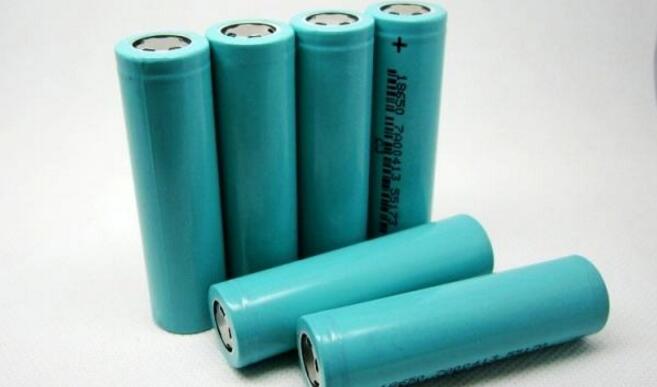Lithium-ion Battery Hybrid
Oct 14, 2019 Pageview:970
Introduction
Lithium-ion batteries are everywhere these days, in the smallest portable electronics and the biggest electric cars. These rechargeable powerhouses are finding their way into hybrid cars too. They are replacing the nickel-metal hydride (NiMH) batteries that are used most often in the hybrids of the past years. Lithium-ion batteries have been expensive in the past. However, as more of them are being made, they are becoming less expensive to manufacture. In the coming years, as more and more lithium-ion batteries are manufactured, automakers can lower the cost of hybrid cars until the prices come closer to that of conventional gasoline-powered cars.
Lithium-ion batteries offer a great advantage which is their ability to be rapidly recharged, something that is required in hybrid driving. These cells store power which is easily tapped and readily available.
Hybrid cars are here to stay and they have a zealous fan base due to their better gas mileage and lower carbon emissions. However, the lithium-ion hybrid car battery could be a matter of concern. Let’s get to learn more about the lithium-ion hybrid car battery.
How long do lithium-ion hybrid car batteries last?
First-time hybrid car owners want to know specifics about hybrid car battery life and the variation. Hybrid cars are likely to provide many years of trouble-free driving. The expected lifespan could be a minimum of 5 years to more than a decade.
Toyota confidently claims the batteries to last the lifetime of the vehicle. Toyota hybrids can run almost 180,000 miles without showing any signs of deterioration. Other hybrid car brands like Honda and Ford offer an 8-year warranty or minimum 80,000 miles for their hybrid battery packs.
Plug-ins and most new hybrid cars typically utilize lithium-ion batteries, which don’t suffer from the same downsides as Ni-Cad counterparts. Lithium-based hybrid car batteries keep their cycle counts - the number of times the battery has been discharged and recharged to full – in check by limiting the battery usage to low-speed driving.
This battery technology offers a higher energy density, which attributes to its natural robustness in the cold, heat and under heavy load. Most modern lithium-ion batteries, for example, ones being used in the Ford Focus Electric, have liquid-cooling and dedicated heating systems to keep the battery pack running at an optimal temperature.
The replacement of a lithium-ion hybrid car battery is expensive, but the new ones can usually run for more than 200,000 miles with proper maintenance. Older hybrid batteries can run around 150,000 miles, but it’s also dependent on the age and model.
The batteries used to power modern hybrids or electric vehicles are high-quality, automotive-grade and are developed to power a vehicle for many years. This is why the manufacturer’s offer long, robust warranties since they are certain about the longevity of the battery. Therefore, if you’re considering buying an electric car or a hybrid car, don’t worry about the battery lifespan. Lithium-ion hybrid battery car technology has improved substantially in the past decade and amount of miles and manufacturer warranties indicate that battery life expectancy is becoming less of an issue.
You should note that, as is the case with all vehicles, performing routine maintenance on your hybrid car is the easiest way to ensure it lasts for many years.
How many batteries does a hybrid car have?
Most hybrid cars have two distinct batteries: there is the main high-voltage battery in the powertrain, which takes over when the car isn’t using gasoline engine or runs along with the gasoline engine for better efficiency, and a smaller 12-volt battery, which is primarily for starting the vehicle, which can be located under the hood, but most often located in the trunk.
The hybrid’s high-voltage battery pack most of the times makes people believe that it’s unsafe or even impossible to jump-start a hybrid. However, these batteries should be easy to tell apart from the smaller, more conventional 12-volt battery used for starting the car, and thus jump-starting it.
A hybrid car battery pack should always be sealed to prevent electric shocks caused by accidental contact and should be marked with warning labels. You should always be extra careful to ensure you’re using the correct battery.
Both of these batteries can run out of power, and if you’re having trouble with your batteries, you will need to determine which battery is the source of your problems. For instance, if your car won’t start, and jump-starting doesn’t work, you will need a mechanic to look at the main hybrid battery.
Lithium-ion batteries hold large amounts of energy, making them excellent choices for hybrid car batteries. This is the same battery, albeit larger, that is used in laptops and other portable electronics. The lithium-ion battery stores enough energy to run a car on electricity alone for twenty-five miles or more at low speed.
Lithium-ion batteries are less toxic compared with other types of batteries, such as lead-acid and nickel-metal hydride (NiMH). Most companies are investing millions of dollars in research for a working hybrid car battery that uses the same kind of power currently found in laptops and MP3 players.
How can lithium-ion batteries improve hybrids?
Many people are now familiar with lithium-ion battery technology through their use in various electronic devices. If you own a laptop or a smartphone or listen to music on an MP3 player, chances are it’s powered by lithium-ion batteries. These batteries are small and light, making them the most preferred choice on the rechargeable battery market.
Several automakers have started using lithium-ion batteries in their hybrid cars. This battery technology can improve hybrids in many ways.
Lithium-ion batteries are small and light. Their counterparts, NiMH batteries are larger and heavier. Weight matters in hybrid cars since the battery power will have to overcome the vehicle’s inertia for maximum mileage. Therefore, lighter battery packs with higher energy density will make it easier for the car to get going. They offer high power and high energy for their weight and volume, and they’re more efficient than nickel-metal hydride batteries. Therefore, a hybrid that uses lithium-ion batteries becomes more efficient.
Li-ion batteries hold a great amount of power, and better yet, the cells can be charged and discharged more rapidly. Li-ion batteries also do not have a memory effect, which occurs when a battery is recharged before it is fully empty. The memory effect can actually diminish a battery’s capacity. NiMH batteries are more affected by the memory effect than the lithium-ion batteries.
Lithium batteries are less toxic than lead-acid and NiMH batteries. Therefore, they make hybrid cars more eco-friendly.
However, it’s still early for the lithium-ion technology in hybrid cars. Its reliability is still not thoroughly proven, and the cost is higher than that of NiMH technology. More testing and investment is ongoing, hence we might see smaller and lighter lithium-ion batteries in hybrid cars very soon.
Conclusion
Lithium-ion batteries are attractive to the rechargeable market. They are slowly having their way into hybrid cars because of their high power and energy density in their smaller and lighter packs. Although they are expensive, as more batteries are manufactured for the increasing number of hybrid cars, prices will decrease, and thus the prices of the hybrids.
- Prev Article: Lithium Ion Battery Formation Process
- Next Article: Semi-Solid Lithium-ion Battery-Definition, Cost, Market
Leave Message
Hottest Categories
-
Hottest Industry News
-
Latest Industry News













